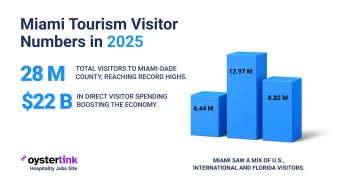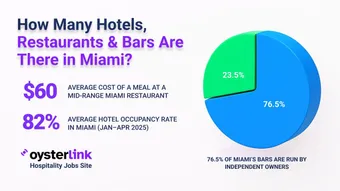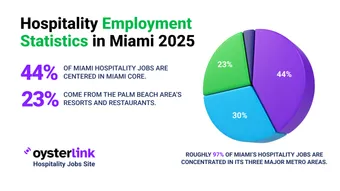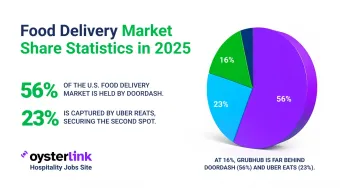Top Bartending Schools in Wichita: Key Takeaways
- Wichita offers multiple reputable bartending education options including Brooklyn Bartending School, Local Bartending School, and National Bartenders School.
- Kansas requires bartenders to be at least 21 years old, but 18+ can serve alcohol under supervision; no state bartending license is mandated, yet certifications are preferred.
- Many schools provide flexible learning methods such as online classes, in-person lessons, and job placement assistance.
Discover the best bartending schools in Wichita, Kansas, that provide comprehensive training and certification for aspiring bartenders.
Understand local regulations and explore leading institutions offering flexible learning tailored to Wichita's hospitality industry.
1. Overview of Bartending Schools in Wichita
Wichita is home to several well-established bartending schools aimed at equipping students with essential skills for working behind the bar. These schools vary in program length, teaching style, and course content but share common goals: preparing students with practical knowledge of drink mixing, responsible alcohol service, and customer interaction.
Schools in Wichita cater to diverse learning preferences, providing both in-person hands-on training and online courses. Many also offer job placement services to assist graduates in launching their bartending careers within local venues.
Employers seeking to hire can benefit from understanding effective restaurant staff hiring strategies to attract skilled bartenders and hospitality workers.
2. Top Bartending Schools in Wichita
Brooklyn Bartending School in Wichita
Brooklyn Bartending School delivers personalized, one-on-one lessons suited for students ages 18 and older. Their curriculum covers a wide range of topics from bar setup and maintenance to responsible alcohol service and beverage knowledge including liquors, wines, and beers.
The school offers flexible options such as in-home lessons and classes at several Kansas locations. Pricing starts at $79 for online courses, while in-person training begins around $399. Graduates also benefit from job placement connections with local establishments like Mort’s Martini and Cigar Bar.
For bartenders interested in career advancement, exploring detailed Bartender job description information can enhance professional growth.
Local Bartending School Wichita
Established since 2011, Local Bartending School presents a comprehensive week-long program that includes over 200 drink recipes, drink preparation skills, and customer service techniques. They provide all necessary materials including bartending tools and workbooks.
Courses are offered online and in various Wichita neighborhoods such as Old Town, Riverside, and College Hill. Additionally, flair bartending and staff training options are available to cater to bar owners and managers.
Bar managers can also access valuable insights from the Bar Manager job description to understand best hiring and management practices.
WSU Tech Culinary Arts Program in Wichita
While primarily a culinary program, WSU Tech's Culinary Arts curriculum in downtown Wichita incorporates training beneficial to bartenders interested in the broader hospitality field. The program features commercial kitchens, demonstration classrooms, and a student-run café for hands-on experience.
National Bartenders School in Wichita
National Bartenders School offers flexible six-day-a-week schedules with one-on-one bar training. Their approach emphasizes practical bartending under CDC safety guidelines including sanitized, socially distanced stations.
The school serves students not only from Wichita but also nearby areas such as Cheney and Augusta. Graduates receive guaranteed job placement assistance following completion.
To further improve your bartending career, read expert advice on how to hire a Bartender that Customers Love.
International School of Professional Bartending in Overland Park
Though located in Overland Park, this school provides longstanding experience with over 31 years in professional bartending training, recognized by Missouri's higher education board. Their courses focus on preparing skilled bartenders with an industry edge, ideal for those willing to commute or relocate.
3. Kansas Bartending Regulations
In Kansas, the legal minimum age to bartend (serving and mixing drinks) is 21. However, individuals 18 years or older may serve alcohol in on-premises establishments like restaurants if supervised by someone 21 or older.
The state does not require a bartending license to work legally, but many employers prefer applicants with certification in responsible alcohol service. Common training topics include Kansas liquor laws, checking IDs, and preventing alcohol sales to minors or intoxicated patrons.
Many bartenders improve their skills and interview performance by reviewing Bartender interview questions to prepare better for job opportunities.
4. How To Choose a Bartending School in Wichita
When selecting the right bartending school, consider factors such as course content, flexibility of classes, instructor expertise, and job placement support. Personal one-on-one instruction, like that offered by Brooklyn Bartending School and National Bartenders School, can enhance learning.
Check for programs that cover Kansas-specific laws to ensure compliance and practical skills. Additionally, investigate schools that provide hands-on experience and opportunities to practice real-world bartending techniques.
For hospitality employers, understanding the how to hire high performers strategies can be essential when selecting candidates from bartending schools.
5. Benefits of Bartending Training in Wichita
- Skill Development: Gain expertise in drink recipes, mixing techniques, and customer service.
- Employment Opportunities: Many schools connect graduates with local bars and restaurants.
- Regulatory Compliance: Training ensures understanding of Kansas liquor laws, reducing legal risks.
- Career Flexibility: Learn skills applicable in a variety of hospitality settings including events and catering.
To maximize career options, bartenders can also explore a Mixologist interview questions page for advanced beverage crafting roles.
6. Additional Resources for Aspiring Bartenders in Kansas
For those interested in expanding their knowledge or obtaining official certification, the following resources provide essential information on regulations and training:
- Kansas Department of Revenue - Alcoholic Beverage Control
- Kansas Department of Labor
- TIPS (Training for Intervention ProcedureS) Certification
- ServeSmart Kansas Bartending License Online Training
- WSU Tech Culinary Arts Program
Top Bartending Schools in Wichita: Conclusion
Wichita offers a variety of quality bartending schools tailored to different learning styles and career goals. Whether you seek personalized instruction, comprehensive classroom training, or broader culinary hospitality education, the options are plentiful.
Combining training with an understanding of Kansas regulations and responsible alcohol service positions aspiring bartenders for success. Leveraging job placement support from these schools can help launch a rewarding career in Wichita’s vibrant hospitality scene.
Employers can learn more about improving their hiring outcomes by reviewing how to hire a Restaurant Manager and other leadership roles in hospitality.





